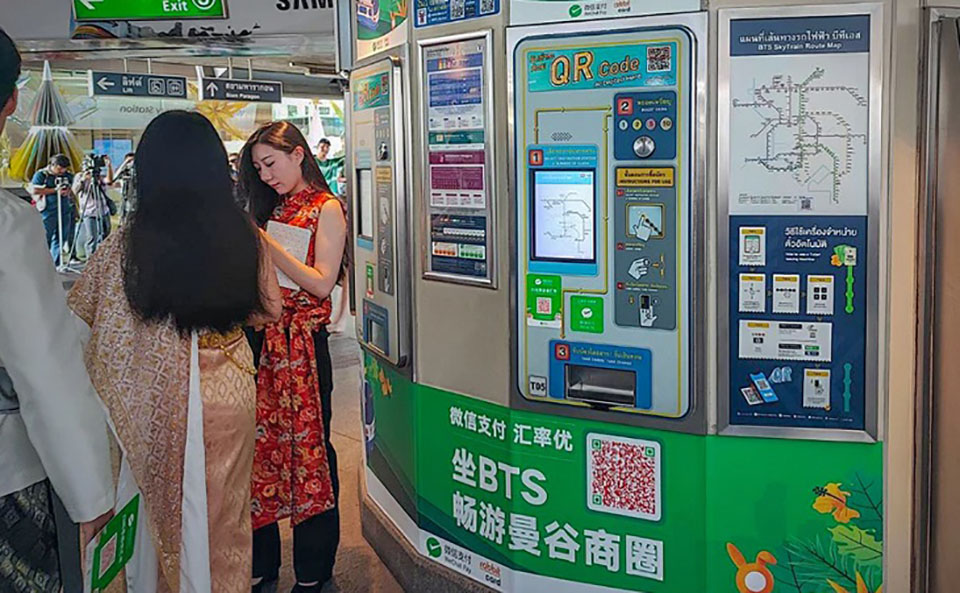
The BTS Skytrain has added WeChat Pay as a convenient new payment method aimed at easing travel for commuters from China in and around Bangkok. The service is now available at ticket vending machines across all BTS Dark Red Line, Light Green Line, and Gold Line stations.
This integration is facilitated through the “Rabbit Gateway,” an electronic payment system managed by Rabbit LINE Pay. The adoption of WeChat Pay aligns with Thailand’s efforts to enhance the travel experience for Chinese visitors, a key demographic in the country’s tourism sector.
Affirming the government’s commitment to the security of all visitors, Minister of Tourism and Sports Sudawan Wangsuphakijkosol highlighted the decision as a reflection of Chinese businesses’ confidence in Thailand’s tourism industry.
The Tourism Authority of Thailand (TAT) expects a surge in Chinese tourists, anticipating at least 8.5 million arrivals by the end of next year, a major increase from the 3.5 million expected this year. This influx is projected to generate around 400 billion baht in revenue.
Currently, Chinese travelers benefit from a visa exemption policy, which is in place until February of the following year. This policy is part of the government’s strategy to boost tourism arrivals.
TAT Governor Thapanee Kiatphaibool recently outlined a broader strategy to generate 3.5 trillion baht from tourism, with 2.5 trillion from international tourists and 1 trillion from domestic tourism. The strategy includes revamping Thailand’s image, exploring new markets, forming global partnerships, improving land connectivity, and promoting Thailand through digital advertising. (NNT)








